Throughout the two years of the Covid-19 pandemic, the tourism workforce was inevitably dispersed to other sectors. Now, domestic tourism has revived, along with the positive sign of Vietnam reopening to international tourists. However, while many have settled into new jobs, those who remain in the industry are still hesitant to return due to concerns about the unpredictable nature of the pandemic. Let's hear from experts, travel agency managers, and hotel and restaurant managers about "business expectations for the tourism workforce in the new normal."
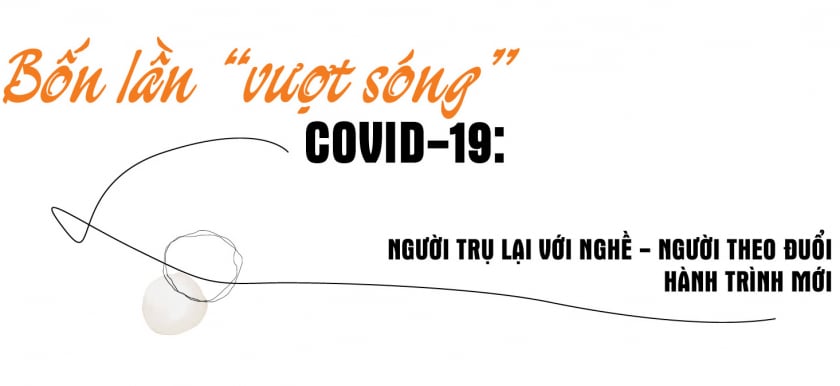
Currently, with a strategy of safe adaptation and increased vaccine coverage, tourism businesses nationwide are eagerly preparing to welcome tourists back. Perhaps the happiest are tour guides and restaurant/hotel staff after two long years of being unemployed.
Luu Chan Huy (27 years old, international tour guide) is delighted to have led many tour groups since the Lunar New Year of the Tiger. With extensive experience and fluent English and Chinese, Luu Chan Huy hopes to soon return to international tours when Vietnam reopens for tourism in mid-March. During the COVID-19 outbreak in Ho Chi Minh City, he took advantage of the opportunity to create a TikTok channel and produce travel-related content to keep his passion for the profession alive, while also selling regional specialties online to earn extra income.
Lam Ngoc My (25 years old, International Tour Guide) was forced to change jobs in order to stabilize her life. My began her new journey as a Quality Analyst for a technology company in Malaysia. Accustomed to the freedom of travel, sitting in an office all day was a real challenge for My. But after a year, My has adapted and dedicated herself wholeheartedly to her new job.
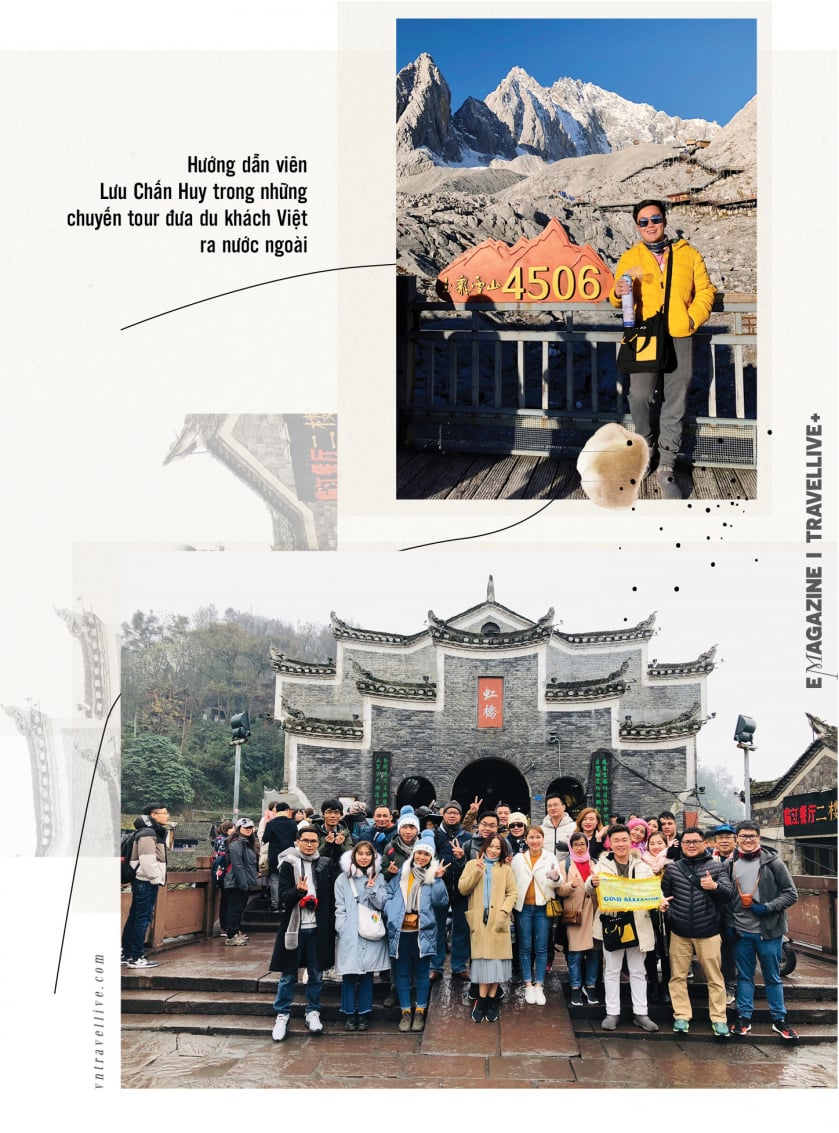
Meanwhile, Nguyen Dac Tai (28 years old) was forced to leave his receptionist job at a high-end hotel in Da Nang after four years. Tai switched to a job as a consultant for vacation apartments in a reputable real estate group in Ho Chi Minh City. Thanks to his neat appearance and skillful communication abilities, Dac Tai quickly settled into and advanced in his new job.
The above are just a few examples among many who, due to the pandemic, lost their jobs or were placed on unpaid leave and had to switch to other work. They do various jobs, from online sales and financial/insurance consulting to ride-hailing services and farming, to maintain their personal income and support their families.
In early 2022, tourism fully reopened with the goal of economic recovery after the Covid-19 pandemic, creating great opportunities for both businesses and the workforce to return to their jobs. However, many employees have adapted and settled into new jobs in other industries. For businesses to find and restructure their workforce, especially high-quality talent, in the current period is truly a challenging problem.

From a travel management perspective, businessman Pham Ha, Chairman of Lux Group, said that his company specializes in welcoming international tourists who use high-end services when visiting Vietnam. After two years of the pandemic, many employees have left because they could not adapt due to the constant changes in different customer markets, from international to domestic. Some employees feel more interested in their new jobs than in tourism, so it will be very difficult to persuade them to return to the company.
After each wave of Covid-19, his business faced even greater difficulties in recruitment. Almost all departments suffered from staff shortages. In particular, recruiting experienced tour guides who were fluent in foreign languages and knowledgeable about the tastes of high-end international tourist markets was very difficult. This was partly because the already limited number had moved on to other jobs, and some had passed away during the pandemic.
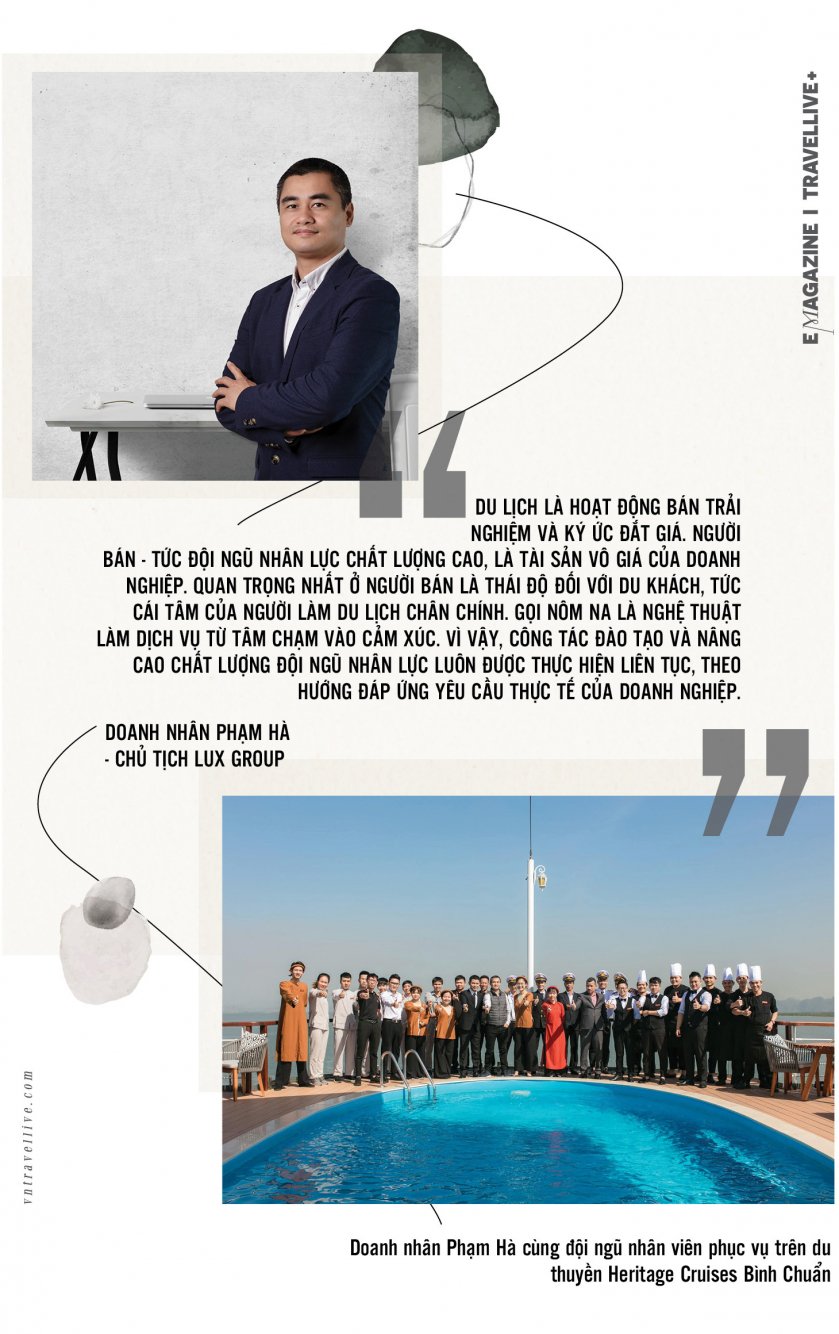
Drawing from his experience as an organizer of a forum connecting over 2,500 students and recent graduates in tourism management with businesses, Mr. Vu Nguyen Minh Tri, Chairman of the Tourism Human Resources Forum, shared that the Covid-19 pandemic acted as a "restart" button, bringing everything almost back to square one. The era where larger businesses were less prone to failure is over. Many large businesses struggled during the pandemic and were forced to cut all their staff, retaining only a few key positions. Even in 2022, businesses remained concerned about the pandemic situation, coupled with financial shortages, so they hesitated to recruit fully; if they did, they prioritized high-quality personnel capable of handling multiple tasks.
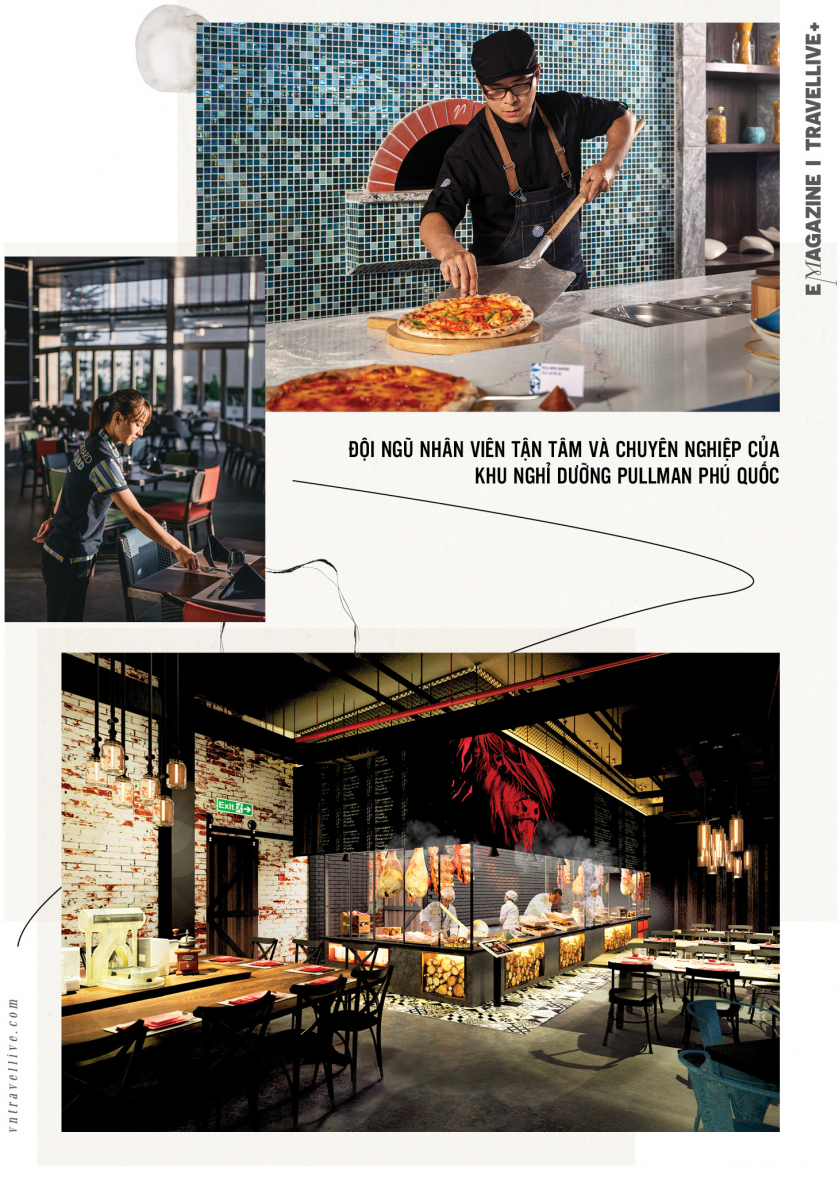
According to Ms. Nguyen Phuong Ngoc, currently an author on the Hotel Briefing Blog community and PR Manager at Regent Phu Quoc, the unpredictable and prolonged nature of the pandemic has made it very difficult for businesses to plan their staffing levels. Many departments in the restaurant and hotel industry have experienced salary cuts. Some have even laid off employees and closed down. This situation could continue into 2022, even as the tourism industry shows signs of recovery.
“The restaurant and hotel industry has been severely impacted by the Covid-19 pandemic, and businesses are unable to recruit sufficient staff. The situation forces businesses to hire high-quality personnel who are truly capable and proficient in a wider range of tasks. Conversely, employee behavior has also changed; they are more concerned about safety, security, and hygiene within a business. Therefore, businesses need to be more thoughtful and flexible in their recruitment and human resource management policies,” Ms. Ngoc said.

When the fourth wave of Covid-19 hit hard in 2021, many businesses couldn't afford to pay salaries and bonuses for high-level positions held by foreign employees, forcing them to leave. This opened up opportunities for advancement for Vietnamese personnel. Some high-level positions that were previously prioritized for foreigners now allow Vietnamese people to take on these roles and demonstrate their capabilities. In this situation, the biggest advantage of Vietnamese personnel is their keen and clear understanding of the local market, shared Ms. Nguyen Phuong Ngoc.
To date, the stable control of the pandemic has led to a surge in recruitment demand in the restaurant and hotel industry. A significant number of experienced staff are seeking to return to work, creating fierce competition with existing employees and recent graduates. At this time, businesses have the advantage, as for the same amount of money, they can choose to hire highly skilled professionals over those with little or no experience.
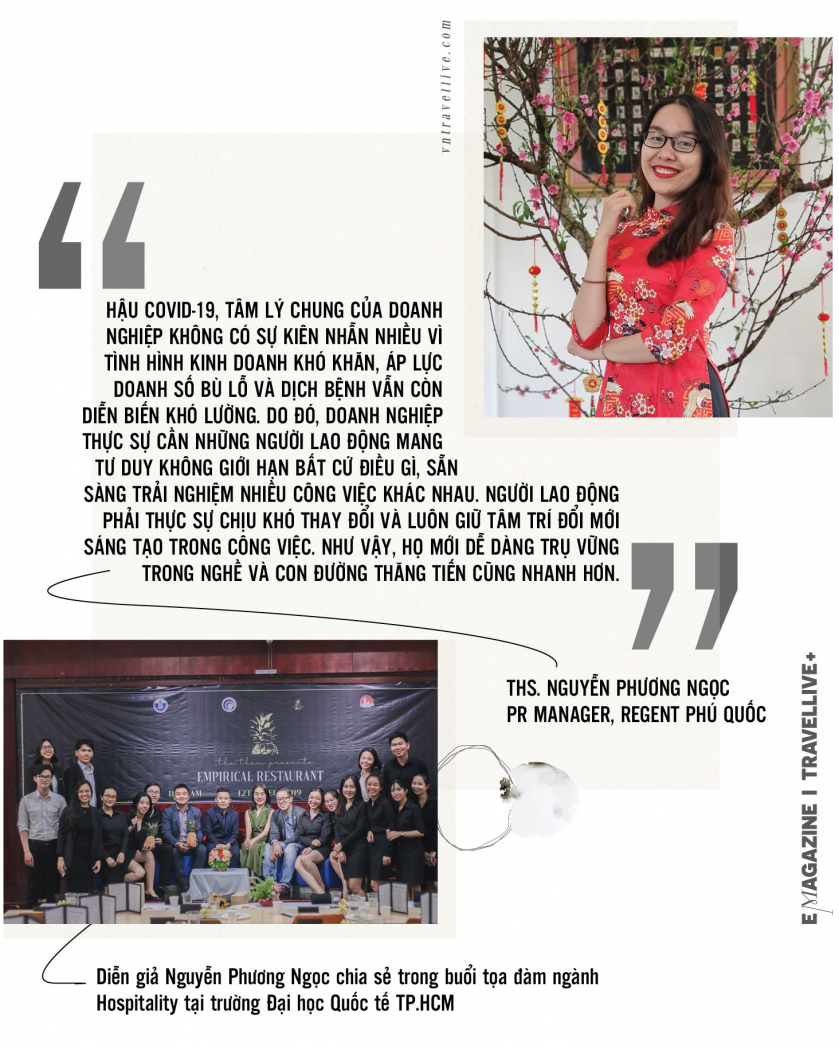
Businessman Pham Ha, Chairman of Lux Group, added that the behavior of both domestic and international tourists has changed significantly, no longer being as mainstream as before. Tourists focus primarily on the private experience of their trip, specifically the journey of discovering "body, mind, and spirit." Therefore, the company must have authentic and unique products that best meet the needs of tourists. Thus, the business needs a more professional team with a flexible attitude and genuine experience in understanding customers.
Mr. Vu Nguyen Minh Tri, Chairman of the Tourism Human Resources Forum, believes that the challenge for human resources lies with the generation of recent graduates. In the past, they only completed online internships, lacking opportunities to gain practical experience in real-world environments. Therefore, upon graduation, they are forced to accept low salaries without hesitation and begin the probationary period again to accumulate professional experience for their long-term future.
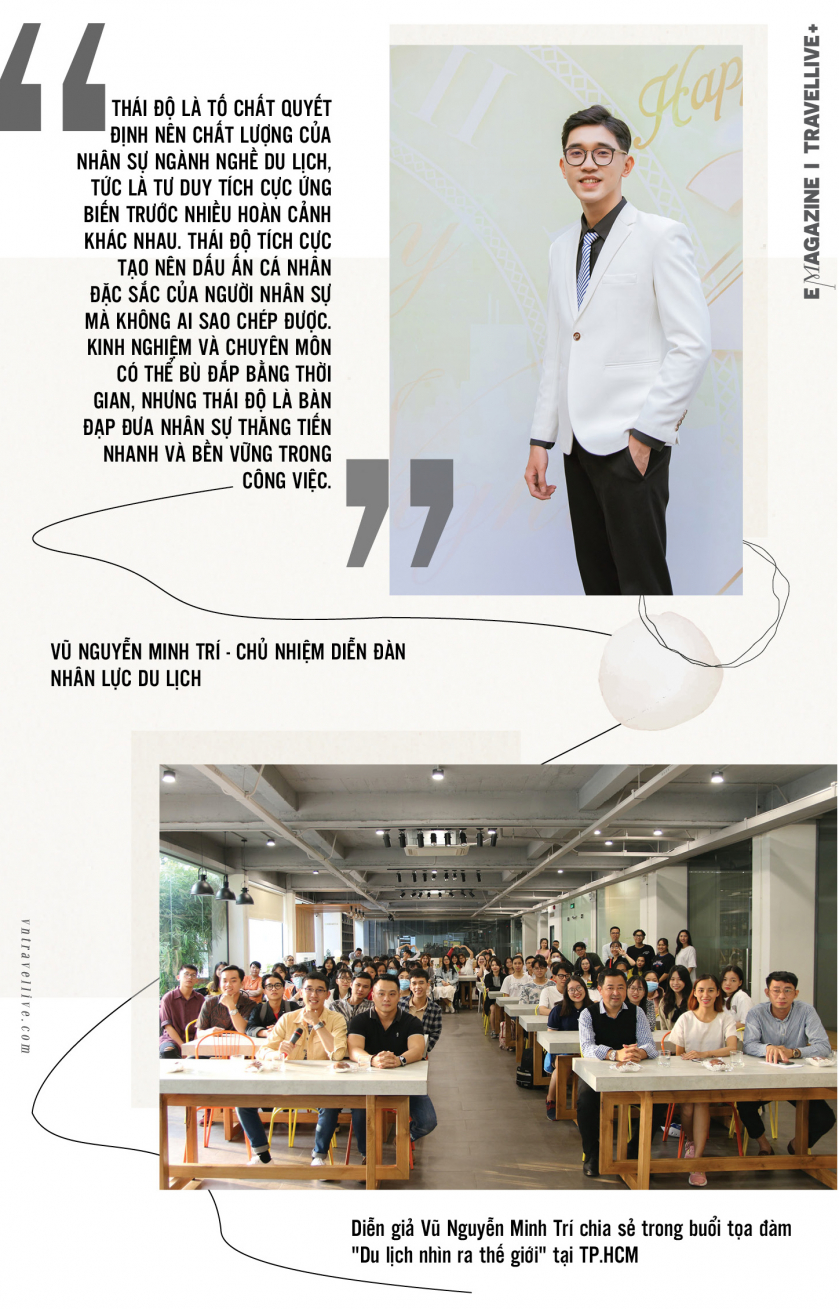
The emergence of the pandemic, coupled with the rapid development of digital technology, demands that human resources possess creativity, adaptability, and the ability to develop plans for self-improvement. Beyond professional expertise, tourism personnel also need to be knowledgeable and diligently accumulate knowledge of politics, socio-economics, and culture to understand the psychology of high-end customer segments, as well as colleagues and partners.
Nowadays, many professionals are proactively building their personal brand and reaching out to recruiters and high-level partners with a professional profile on LinkedIn. Alternatively, some choose to join the KOL (Key Opinion Leader) community.(Key Opinion Leader)and KOC(Key Opinion Consumer)Expand your income and network across multiple social media platforms, instead of just submitting your CV through manual recruitment channels like before the pandemic.
Ultimately, experts have come to the consensus that the pandemic is a short-term issue compared to the long history of the tourism industry. Once things stabilize, the tourism industry will get back on track to recover, possibly even faster than predicted. Therefore, the demand for tourism human resources will always exist and be attractive to those who are adaptable, innovative, and dedicated to their chosen profession.
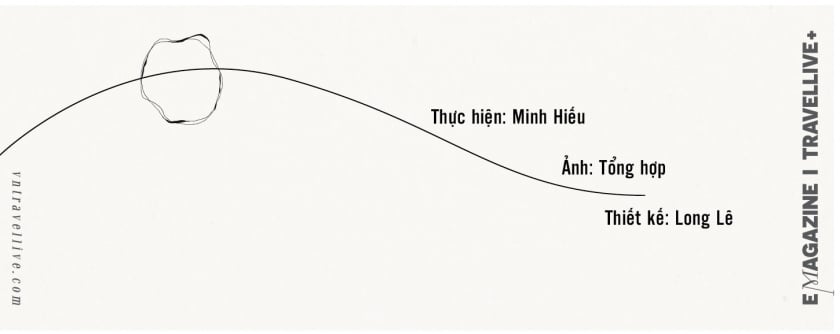

 VI
VI EN
EN












